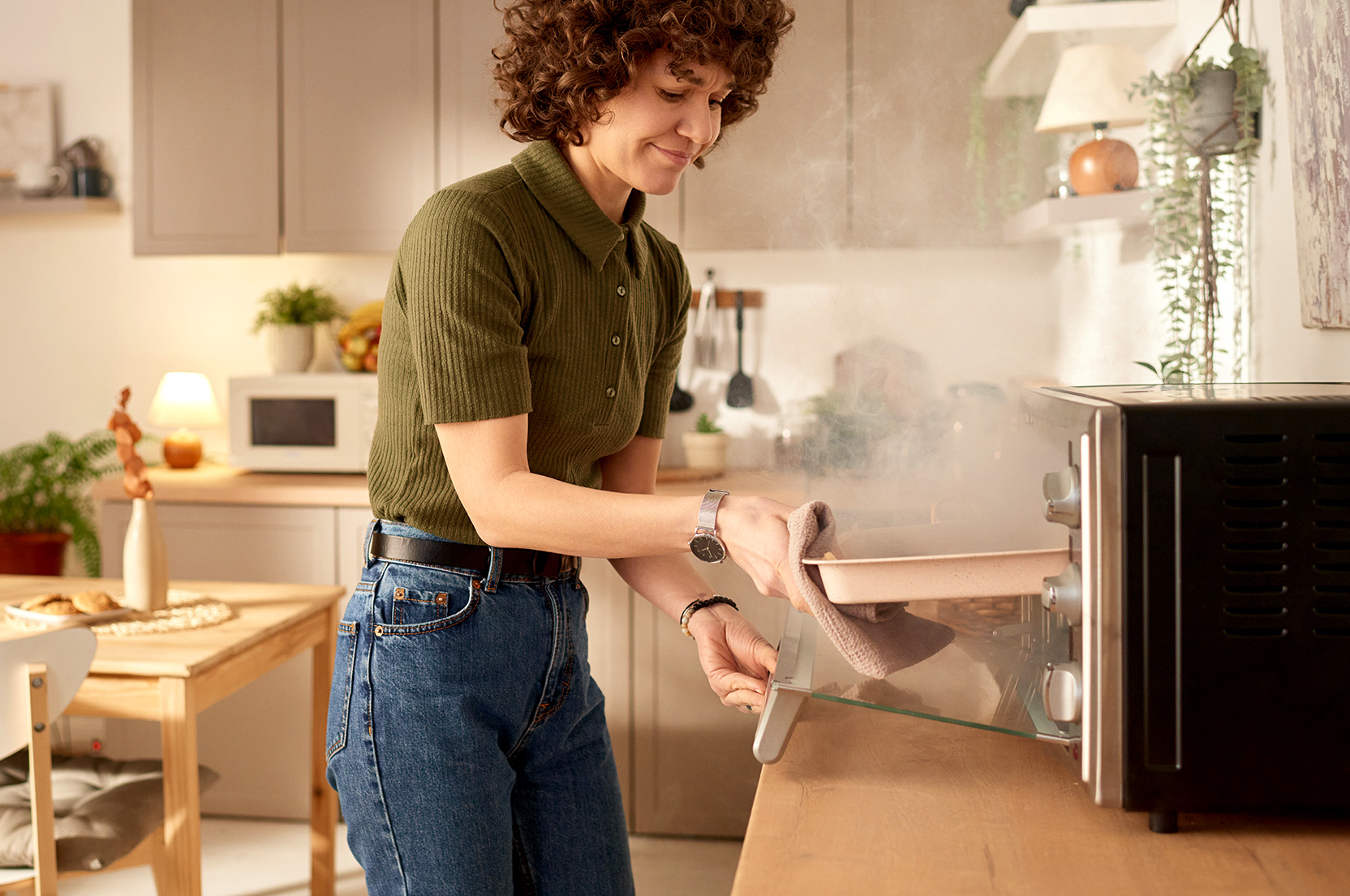Watch out for faulty electrical appliances!

Electricity is a major cause of accidental fires in UK homes, with over 20,00 fires occurring each year, according to safety charity, Electrical Safety First1. That means more than 15% of domestic fires in England and Wales and around 10% in Scotland are caused by electrical faults, with appliance breakdown and broken cables some of the leading causes. Here, we take a look at the main culprits and provide a few do’s and don’ts to help keep you safe.
Fire facts
If you’d like some more statistics, 89% of electrical fires (that’s nine out of 10) are caused by electrical products, with 11% caused by faults in installation or people not using their installations properly. Faulty appliances alone cause £41.6 million of damage per year, with electric cookers (£24m) and lighting (£13m) among the largest contributors.
The five products that cause the most electrical fires in UK homes2 are electrical cooking appliances, such as cookers and microwaves (but not deep fat fryers); laundry appliances, such as washing machines and tumble dryers; electrical lighting; portable heaters; and TVs. In total, they cause nearly 12,000 fires and 2,000 injuries a year.
According to research carried out by Electrical Direct2, household appliances caused 15,000 accidental fires in homes across England in 2019/20 - that’s around 43 fires a week - with cookers, toasters and hobs the most likely to catch fire. Cookers were responsible for 8,000 fires, that’s 53% of appliance fires, followed by hot plates causing 11% and toasters 9% of appliance fires.
Safety devices
Safety charity, Electrical Safety First recommends the use of two devices that could prove to be a life-saver in the event of electrical risk or fire. The first is a Residual Current Device (RCD), installed in your fuse box, that switches off the electricity automatically if there's a fault, preventing you from getting a fatal electrical shock if you touch something live, such as a bare wire. The second is a smoke alarm, providing an early warning signal in the event of smoke and fire, giving you valuable time to escape.
How to prevent a fire in the home
Government statistics show that the majority of fires caused by electricity in the home are caused by people misusing electrical cooking appliances, which indicates that you need to take special care when using appliances in the kitchen. Top tips include:
- Never let leads from other appliances, such as kettles and toasters, trail across the cooker
- Never use the area on top of your microwave for storage
- Never dry towels on or near the cooker
- Don’t allow fat and grease to build up on or in the cooker, or in the grill pan, where it could easily catch fire
- Always turn off the cooker when you’ve finished using it.
Do’s and don’ts
- Have the electrical installations in your home checked by a registered electrician, either when you move house or every ten years
- Check your sockets regularly – if you see burn marks or they feel hot, get them checked out
- Having a working smoke alarm on every floor of your property
- Before plugging in appliances, check cables for damage, wear and tear, and that the plug is fastened securely to the cable
- Don’t store combustible materials, such as clothes, papers, cleaning materials etc, close to your electricity meter or fuse box
- After use, always switch off, unplug and put away hand-held electrical appliances such as hair dryers and straighteners that get very hot during use
- Don’t overload electrical adaptors by plugging too many appliances into one socket, especially those with a high electrical current rating, such as kettles, irons and heaters.
- If using a portable heater to keep warm, keep it away from flammable materials such as curtains and furniture and never dry clothes on it.
- Turn off any electrical appliances you are not using, particularly at night, when a fire can spread quickly and unnoticed.
Other safety guidelines
General guidelines include always buying from a retailer you can trust, follow the manufacturer’s instructions and register your electrical appliance so the manufacturer can contact you if there is a problem. You should never leave a washing machine or tumble dryer running overnight, and if the appliance is making a strange noise or isn’t working properly, unplug it and contact the manufacturer or a qualified repairer.
It’s a good idea to regularly clean behind your fridge and freezer to keep dust from building up and ensure there’s enough room behind it for air to circulate freely, and never place a fridge or freezer close to a cooker, radiator or in direct sunlight, as it will have to work harder to maintain the required internal temperature.
What to do in the event of fire
- Keep calm, act quickly and get everyone out as soon as possible
- Don’t waste time investigating what’s happened or rescuing valuables
- If there’s smoke, keep low where the air is cleare
- Before you open a door check if it’s warm: if it is, don’t open it, fire is on the other side
- Call 999 as soon as you’re clear of the building (999 calls are free).
TMD - here to help
To discuss or arrange buildings and contents insurance or any other type of cover you require, please contact TMD. Our friendly and professional team is here to help you. Call us on 01992 703 000 or email us at insurance@mcdonaghs.co.uk
1 Electrical Safety First: Fire Fact Sheet
2 electricalcontractingnews.com: Faulty appliances cause 43 fires a week in England, research finds

